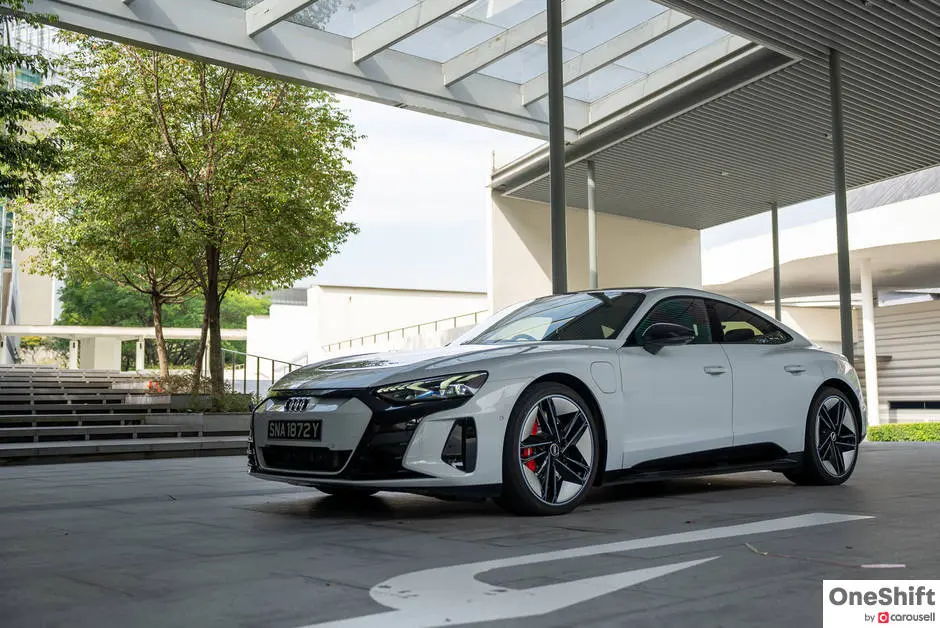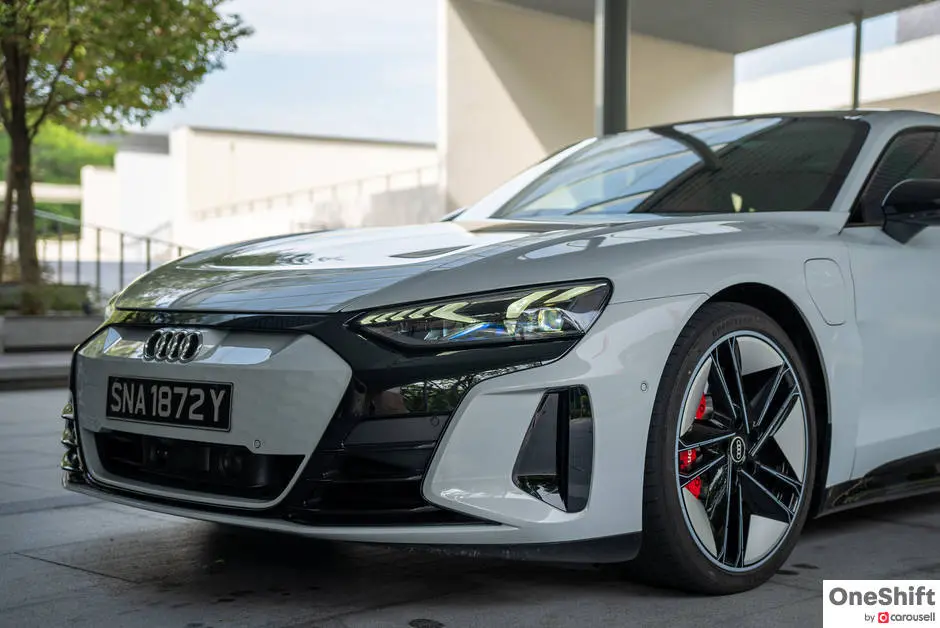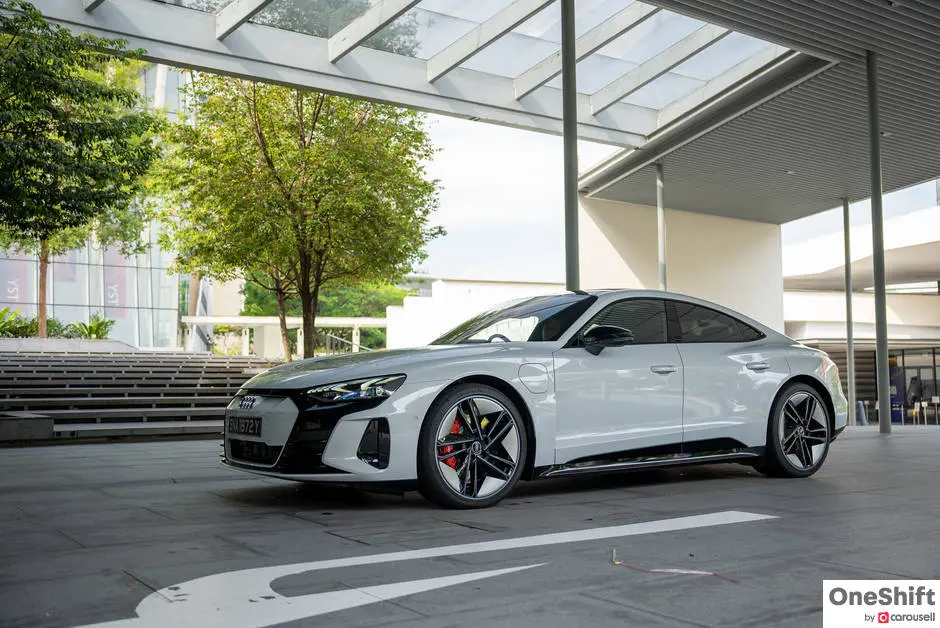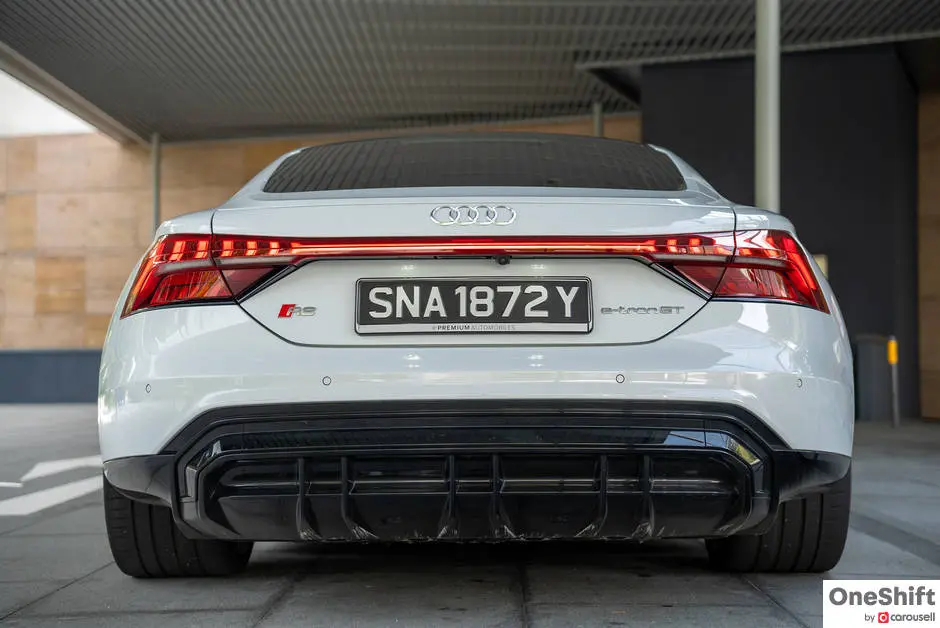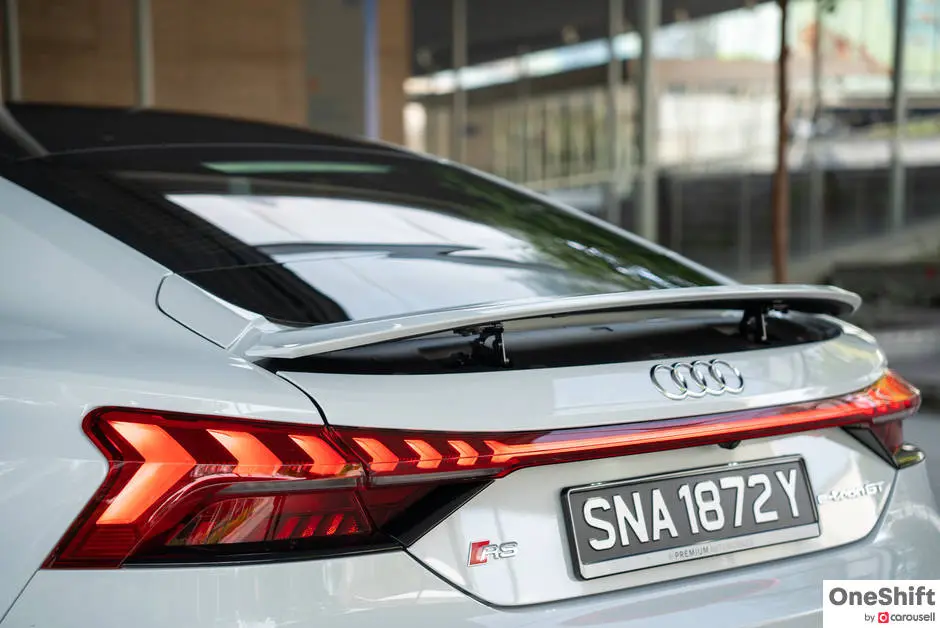Audi RS e-tron GT Review: It's the Calmest Crazy Fast EV We've Driven
The RS e-tron GT is the fastest accelerating Audi on sale in Singapore today - but it is also one of the calmest to drive.







You haven’t experienced proper ride comfort until you’ve had a spin in the RS e-tron GT. Equipped as standard with the three-chamber adaptive air suspension which is a $7,373 option elsewhere in the range, it’s the case of bracing for an impending road bump but not actually feeling anything at all. It’s as if a magic wand was waved over the bump to have it magically removed. We’ve seen and tried this three-chamber technology in other cars within the Volkswagen Group too, but I think it is most devastatingly effective in the RS e-tron GT, the best our bums have had a chance to savour this side of a Bentley.
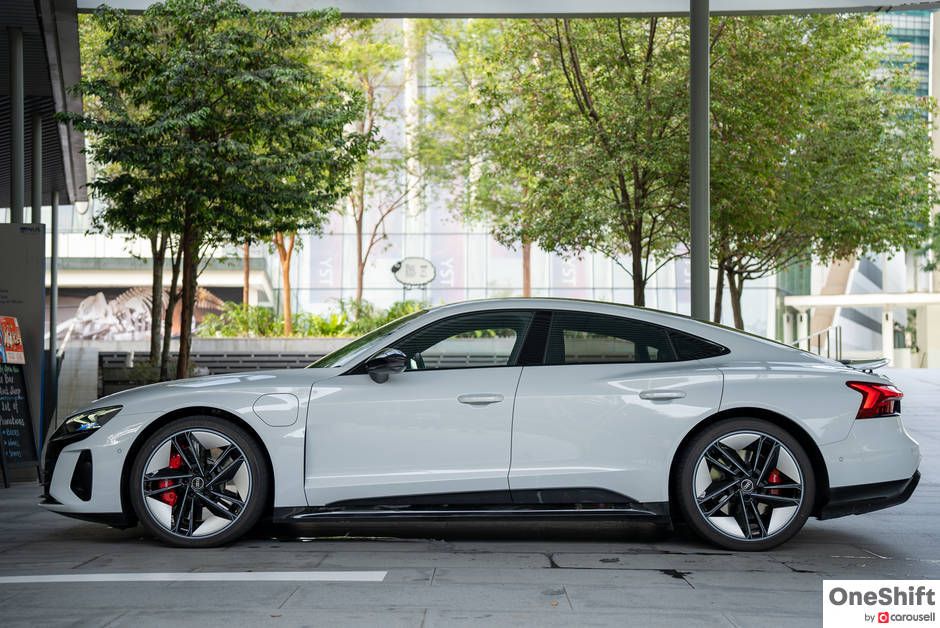
It goes quite a long way to set the tone for the rest of the car. Comparisons with its close relative, the Porsche Taycan, are inevitable. However, although sharing the same J1 platform on which the Taycan was developed and spearheaded the Group into top-echelon electrification, the RS e-tron GT is differentiated enough to have its own character. The steering is most definitely tuned as an Audi’s - it’s a little languid compared to the directness and purity of the Taycan’s. The accelerator pedal also seems to ease you into acceleration rather than being an on-and-off switch, although there is a very slight blink-and-you’ll-miss-it jerk when you prod the pedal on and off lightly. This is due to the car having a 2-speed transmission which is unique for EVs and is shared with the Taycan. Everything’s just calmer here than in the Porsche, which feels tighter and more ‘as one’.
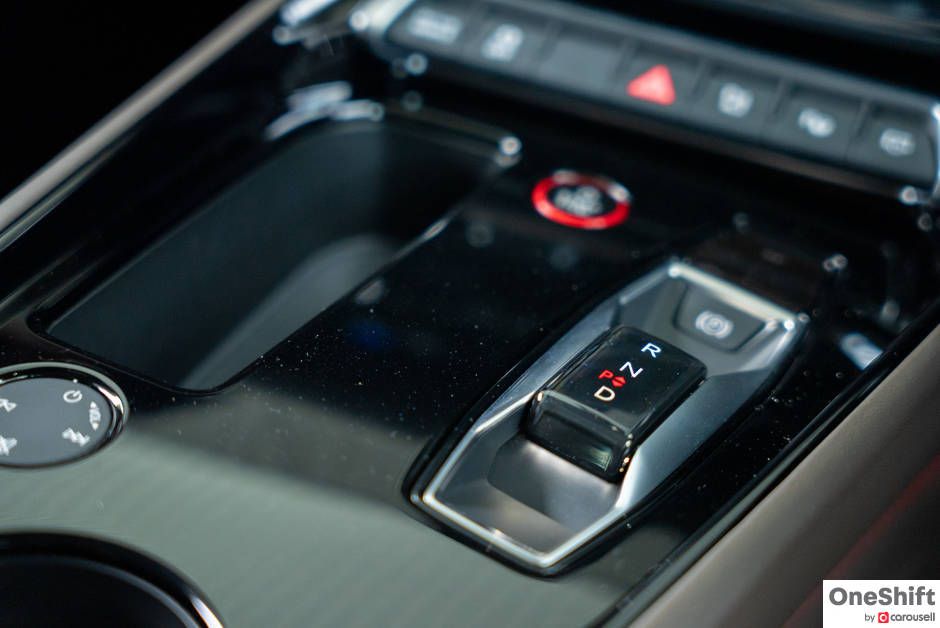
As a result, you can let your guard down a little and relax without feeling like you need to scythe through traffic. However, I did notice more tyre roar in the Audi than expected - but this could have been due to worn rubber, doubtless abused from multiple 0-100 km/h sprints in its press car life.
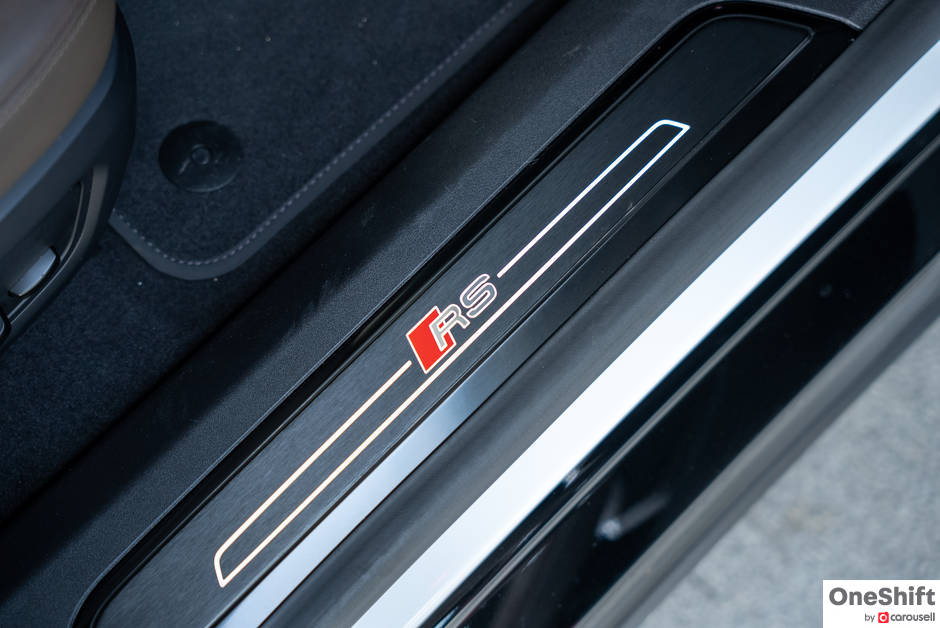
It does it in 3.3 seconds in its boost (beast) mode (3.6 seconds without), which is almost able to plaster your body into the seat permanently. It’s officially the fastest accelerating Audi ever to be sold in Singapore. Eliciting giggles from my son and teleporting items in the cabin, the car will easily spin all four wheels in the wet on a full throttle sprint. Thankfully, all e-tron GTs currently have quattro all-wheel drive so the power is well-managed. There’s an electronically controlled differential lock for the rear (standard for the RS) but I can’t say I felt it on the road; perhaps more obvious would have been all-wheel steering which is a $5,651 option. Even in Efficiency mode which switches to primarily front-wheel drive, the car is faster than 99% of traffic out there. There is really so much power, perhaps too much (646 PS, 830 Nm). I have a hunch the non-RS car would be plenty fast enough for most already.
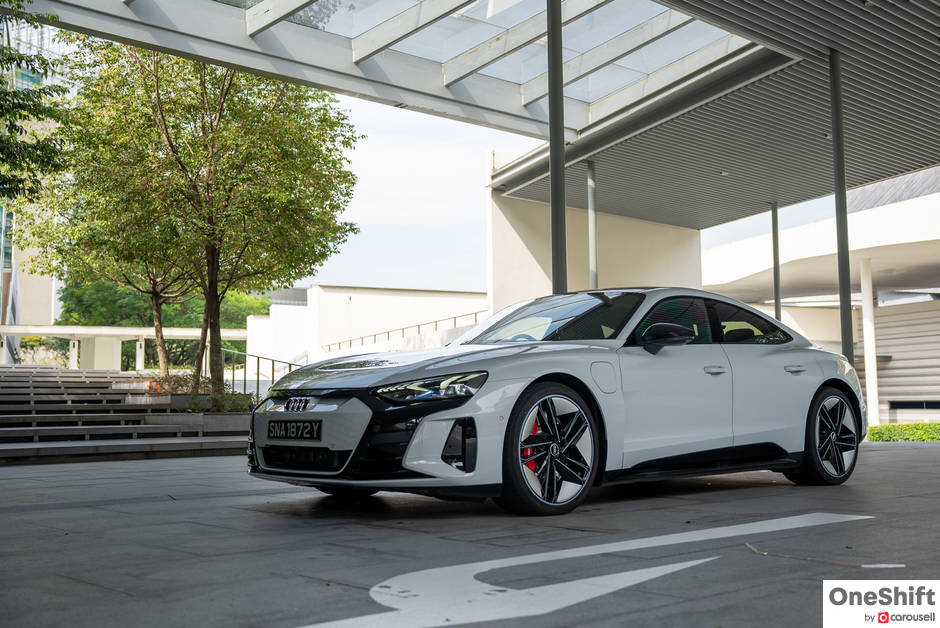
Then again, this is an RS we are talking about. But it doesn’t really look like one, right? Perhaps because the e-tron GT is already an eye-catching car to begin with - but I think more could have been done to differentiate the top-dog RS. Well, some small details are there if you really look, like the standard tungsten carbide brakes called ‘Audi Carbid’ that look like a pan of glass behind the 21” rims. They operate really well, by the way. There are also blue accents in the Audi laser lights. But that’s all you get by way of clues.
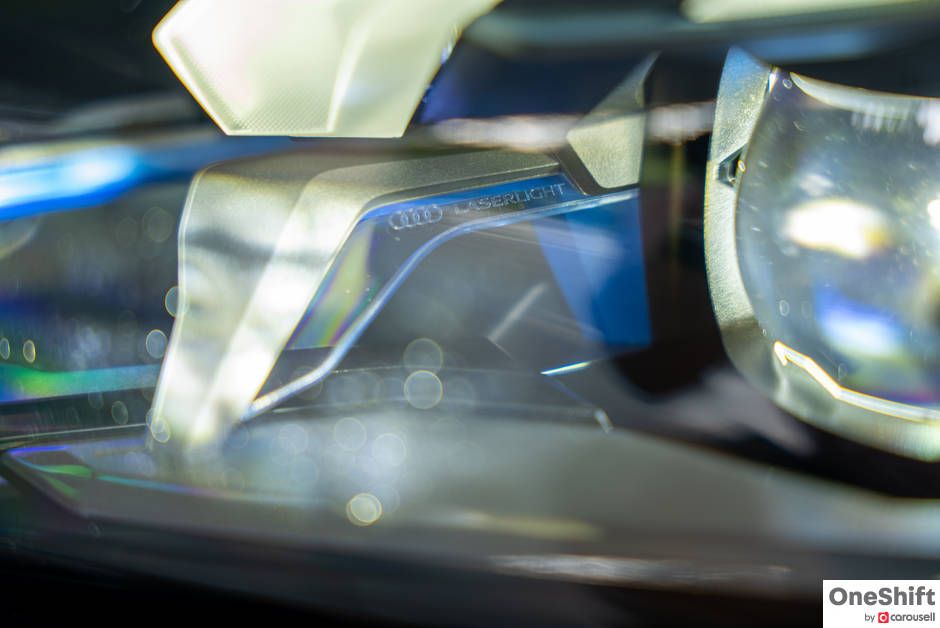
That said, the e-tron GT as a whole looks more muscular and manly than its cousin, which takes a more minimalist and petite approach. I personally find the e-tron GT’s rear lights stretched a little too large and the quattro blisters a little too exaggerated, but I seem to be the minority as nearly everyone who set eyes on the car was stunned by its looks.
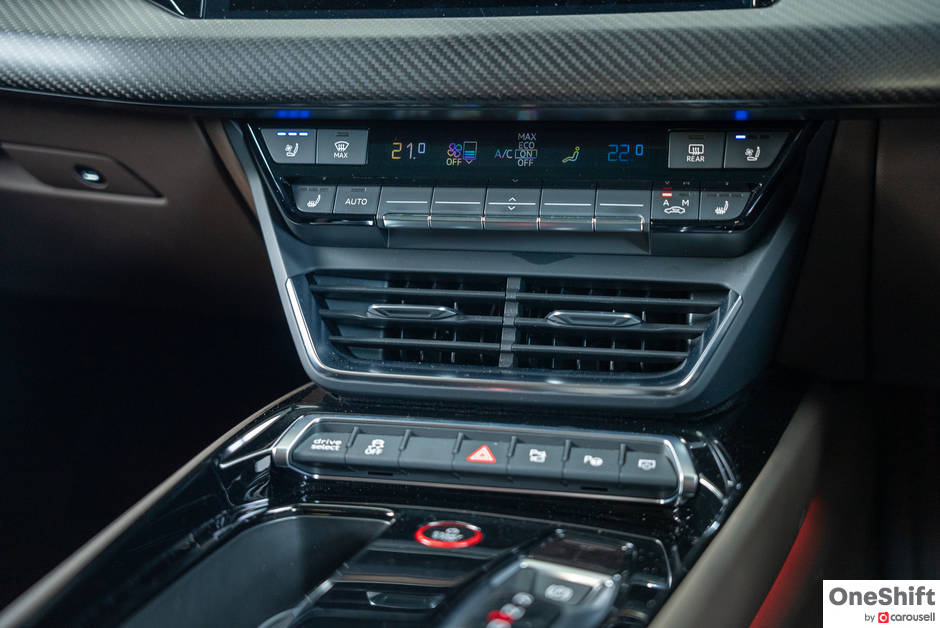
The interior is far more conventional than the exterior design would suggest, with all controls and instruments very familiar from any Audi. In fact, there are less touchscreens here than you get in its more expensive siblings, but I consider that a good thing. There are physical buttons for things like climate control and audio, which makes absolute sense. Ergonomically, it is near faultless but the cabin feels a little tight as a whole, especially after experiencing the open plane concepts of some other EVs. There isn’t much by way of storage either. The view out the back window is also rather atrocious.
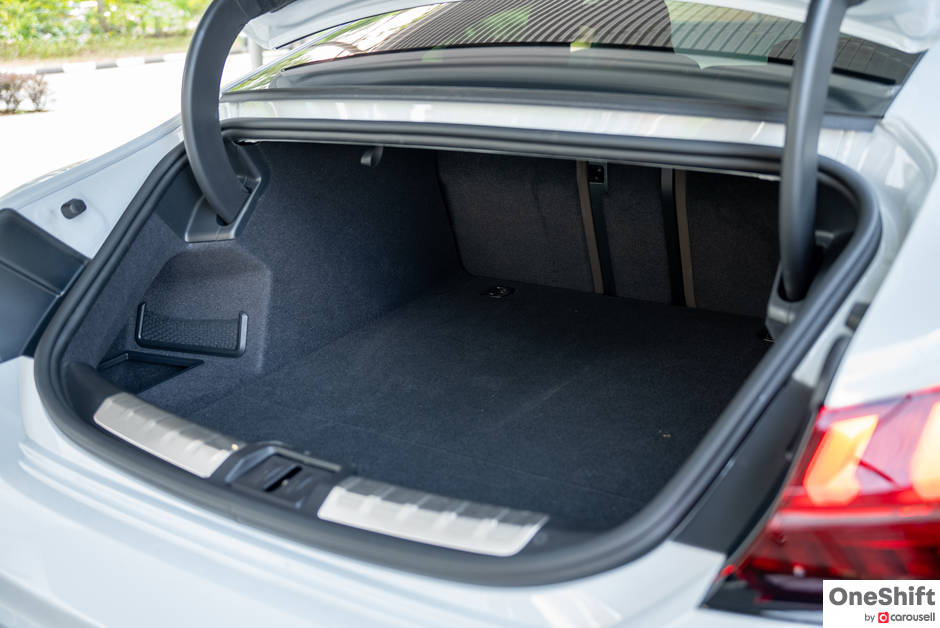
Like the Taycan, boot space is limited in the RS e-tron GT but at least it gives slightly better access with a rear windscreen that doesn't slope as steeply. However, it is still a shallow space and not quite ideal for a long road trip up to Malaysia, if that’s even relevant.
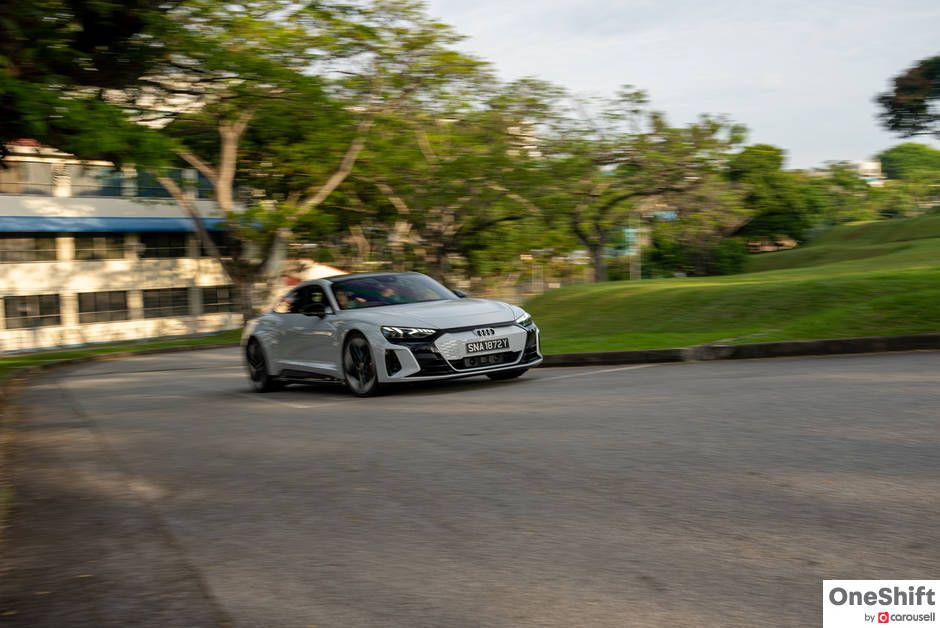
Speaking of a long drive, the RS e-tron GT’s 93 kWh battery gives a max range of 472 km (WLTP). In practice, I saw an indicated 443 km at full charge and travelled about 258.5 km with about 70 km of range left, which adds up to 328.5 km. Given I drove rather spiritedly, I think a figure closer to 400 km is possible in the real world.
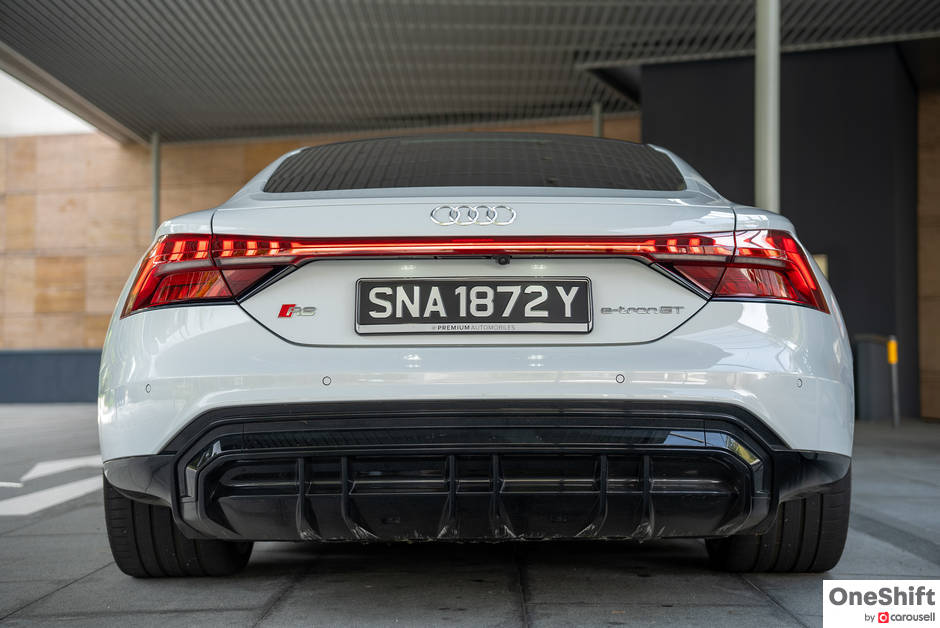
With the Taycan being the pioneering car under the J1 platform and stealing the limelight, it is easy to forget that the RS e-tron GT is still one of the most accomplished electric vehicles on sale today. It is not just fast, but also covers ground with the finesse and poise of a true luxury car built by an experienced manufacturer. We’ve never been this calm going this fast.
Credits: Text by James Wong; Photos by Horizon Drivers' Club

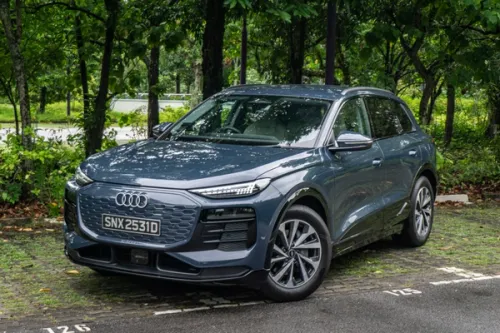






Get the Best Price for your used car
from 500+ dealers in 24 hours

- Convenient and Hassle-Free
- Consumer Protection
Transparent Process
With No Obligation
